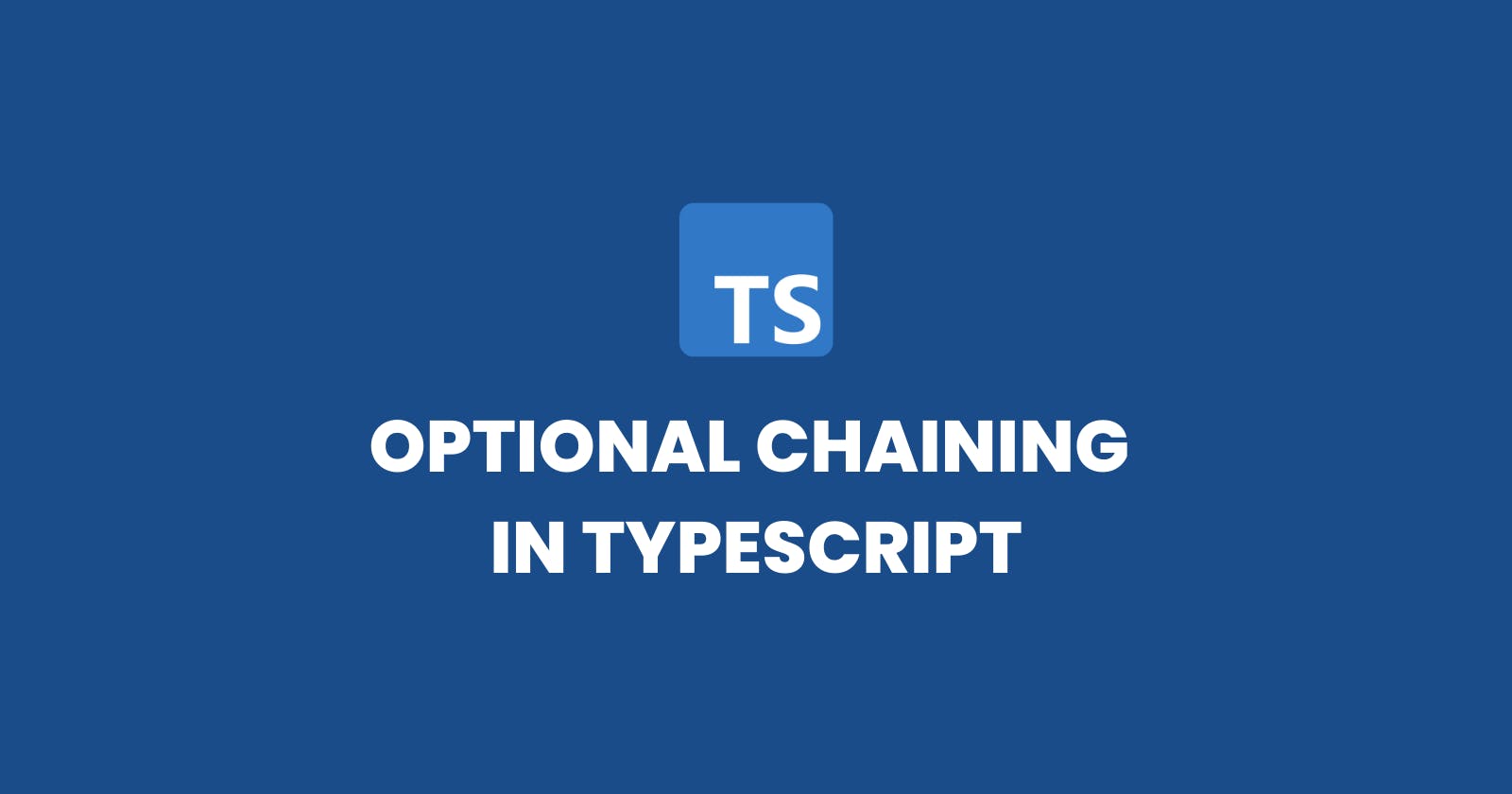Unleashing the Power of Optional Chaining in TypeScript
Discover the secret to simplifying TypeScript code with the mighty Optional Chaining feature.
What is Optional Chaining?
Optional Chaining is a feature in TypeScript that allows you to access nested properties of an object or call chained methods, even when one or more of these properties are null or undefined. It provides a safe and concise way to handle situations where you're unsure if a property or method exists in a chain of objects.
Example
Imagine you're working with a complex object that has multiple nested properties. Without Optional Chaining, you must perform several null or undefined checks to access a specific property. This can lead to confusing code, redundant checks, and prone to errors.
Without Optional Chaining, we have to do something like:
if (obj && obj.prop1 && obj.prop1.prop2 && obj.prop1.prop2.prop3) {
// Safely access obj.prop1.prop2.prop3
}
Using Optional Chaining we have:
if (obj?.prop1?.prop2?.prop3) {
// Safely access obj.prop1.prop2.prop3
}
Conclusion
Optional Chaining is a powerful tool in TypeScript that simplifies accessing nested properties and chained methods, providing a safer and more concise approach. It helps reduce the need for manual null and undefined checks, making the code more readable and less error-prone.

